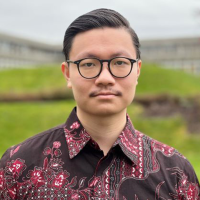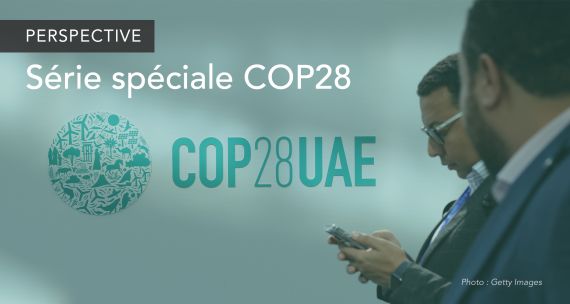The Takeaway
On November 21, Indonesia launched its Comprehensive Investment and Policy Plan (CIPP), the technical roadmap for the country’s US$20-billion Just Energy Transition Partnership (JETP). The JETP, the largest-ever financing package of its kind, aims to provide Indonesia with the funds it needs to reach its national target of net-zero emissions in the power sector by 2050. While the CIPP has been commended for building on the country’s momentum in decarbonizing its power sector, some critics accuse the Indonesian government of offering “false solutions.”
In Brief
- Integrating a just energy transition approach is key to addressing the climate crisis and ensuring an inclusive energy transition. This means ensuring that the people and communities affected by energy transition decisions, such as the retirement of coal plants, are not left behind. This approach could also include creating jobs and offering training incentives. The inclusive-centred strategy has gained traction in recent years, with multiple JETPs being struck recently in Southeast Asia, including one with Indonesia and another with Vietnam.
- These political and financial commitments are between recipient states and the International Partners Group (IPG), which includes the governments of Canada, Denmark, the EU, France, Germany, Italy, Japan, Norway, the U.K., and the U.S. Private financing is to be catalyzed by the public financing. Indonesia’s JETP was struck in 2022 between Jakarta and the IPG.
- Half of Indonesia’s JETP’s blended public-private financial package will be provided by the IPG, with the remaining US$10 billion to be catalyzed by private financing from the Glasgow Financial Alliance for Net Zero (GFANZ). The GFANZ is led by a group of CEOs and other leaders from various financial institutions, including BlackRock, Bloomberg, Brookfield, and HSBC. While the agreements are not binding, some observers have described them as “potentially promising” as they are country-led and primarily focused on addressing the social impacts of a green transition — an aspect that is often overlooked in decarbonization strategies.
- A secretariat has been established to implement the JETP. The CIPP, which the secretariat will update annually, was jointly supported by independent working groups, including the International Energy Agency, the World Bank, the Asian Development Bank, and the UN Development Programme. As part of the JETP, Indonesia would be required to retire coal plants as early as 2035 — with international financial support from the Energy Transition Mechanism — and ramp up its renewable energy capacity by 20 per cent by 2030. Both targets will test Jakarta.
Implications
The Indonesian government is building momentum for green investments. Indonesia, a developing country, has a rapidly growing economy. It has pledged to meet net-zero targets by 2060, a key target for a country already bearing the brunt of the climate crisis. It is estimated that for Indonesia to meet the targets set out under the JETP, a total of US$100 billion is required by 2030. The JETP is meant to de-risk and catalyze private investment by building momentum for a green energy transition. Not wanting to be complacent, Jakarta has already begun seeking other investment deals in addition to the JETP, including through China’s Belt and Road Initiative and Japan’s Asia Zero Emission Community.
The CIPP has been criticized for what some see as its insufficient environmental ambition. As much as the CIPP is a move in the right direction towards addressing the climate crisis and decarbonization in the power sector, criticisms of the CIPP’s potential for insufficient action and ‘greenwashing’ — advocating for environmental sustainability while, in fact, engaging in environmentally destructive activities — have begun to mount. The plan’s cap on coal-fired plants does not apply to off-grid plants, and it does not address the fact that these plants fail to mandate any form of pollution-control mechanisms. It is estimated that in 2022 alone, 10,000 deaths occurred due to pollution emanating from coal-fired power plants in Indonesia.
What’s Next
- Updates to JETP
The CIPP was released on November 1 for two-week long public feedback, during which it received 33 submissions. Feedback received on the CIPP will be addressed and reflected in the 2024 version of the document. Additionally, policies for captive coal plants are to be eventually considered as part of the JETP. Emissions from captive power plants currently account for 25 per cent of Indonesia’s operating coal capacity and are responsible for nearly 20 per cent of coal-related health impacts.
- COP28
Until December 12, politicians, diplomats, businesspeople, lobbyists, and more will be at the UNFCCC COP28, hosted by the UAE, to discuss various climate-related issues. One of the major outcomes of the conference will be a review of the Paris Agreement through the ‘Global Stocktake’ process, after which Parties (i.e. countries) will submit enhanced nationally determined contributions to ratchet up their climate ambition. Additionally, 119 countries, including Indonesia, have committed to triple their renewable energy capacity by 2030, further emphasizing Jakarta’s commitment to meeting the JETP targets.
• Produced by APF Canada's Southeast Asia team: Hema Nadarajah (Program Manager); Alberto Iskandar (Analyst); Saima Islam (Analyst); and Sasha Lee (Analyst). Edited by: Ted Fraser. Design by: Chloe Fenemore.








